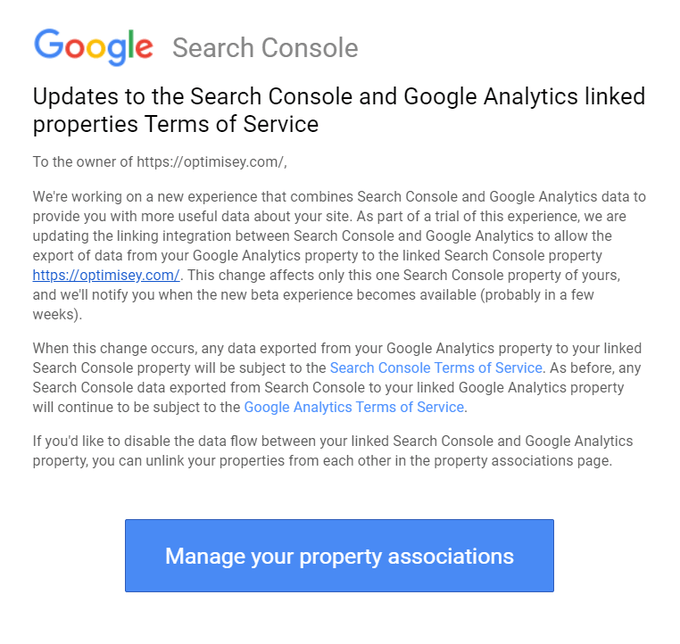Join Fusion’s technical SEO team as we round up last month’s major industry updates.
Former Google exec to launch private and ad-free search engine
Sridhar Ramaswamy, who was responsible for a significant chunk of Google’s advertising arm, announced that a new competitor will soon be entering the organic search market. Ramaswamy stated in a recent interview that he “came to realise that an ad-supported model had limitations”, subsequently announcing the launch of Neeva.
As an move to shake up the market, the prominence of advertising towards the top of search results (especially on smartphones) has been highlighted, questioning the incentive to provide the most relevant search results. Questionable advertising placement on YouTube videos has also been brought up.
The search engine would not only index the content on the web, but would also combine it with files hosted in other places such as email servers and possibly locally. It has also been suggested that web search will be powered by Bing, maps by Apple, and stock and weather information from other established providers. Linking other accounts, such as Google, Office or Dropbox will allow for personal data access, and personalisation over time.

What would also differentiate the competitor would be a ‘freemium’ model, as well as lack of advertising and data mining.
A pricing model hasn’t been officially announced yet, however access will be free for early adopters. Mr. Ramaswamy hinted, that a monthly subscription might be less than £8. Only time will tell if users will be willing to take up the offer.
Support for the WebP image format increases
Image format Webp, launched in 2010 and currently developed and promoted by Google, has been included in the developer notes for Apple’s Safari browser. This means that, in addition to Chrome, Firefox, and Edge, the addition of Safari will allow for more widespread adoption across the web.

Google has also extended it’s support for the format, allowing for the use of WebP images as a logo in Structured Data.
Although the format has been criticised by some experts for performing below expectation, it could mean a small step towards enabling webmasters to serve more data-efficient images to mainstream audiences.
Google working on integrating Analytics and Search Console data
In the past month it has been reported that Google was sending out messages relating to the deeper integration of Search Console and Analytics data.

It’s also been rumoured that a Beta version is live on some accounts, however no screenshots are available at the time of writing this. Insiders have suggested that, amongst other features, Google will prominently highlight the performance of new and most popular content, traffic acquisition paths, as well as top referring and newly acquired links.
Google’s Webspam Report Highlights
Google has published a summary of their webspam report, which refers to efforts they carry out in order to prevent spam from appearing in search results. It’s estimated that a user has less than a 1% chance of encountering webspam when selecting a result from the search pages.
In comparison to 2018, user-generated spam has been reduced by 80%, and Google is reporting that this type of spam “did not grow in 2019”. While link spam continues to be popular, Google states that 90% of it can be filtered out, arguing specifically that this makes paid links less effective. Unfortunately, these types of practices are still more common in the industry than we’d all like to see.
Hacked website spam has also been mentioned. It seems like the rate of growth of this type of abuse is decreasing, as Google continues working on solutions to notify webmasters and help them recover.
Google also shares some of their learnings when it comes to spam trends, pointing out auto-generated and scraped content is on the increase. We’ve also come across this when carrying out link audits, mostly in the form of image scraping.
The search engine mentions way they have helped webmasters by introducing Site Kit for WordPress, as well as other features. Wide adoption of the two new link attributes has been reported (“adopted around the world”), but sadly with no data to back it up.
New WordPress update focuses on Security and Maintenance
As mentioned above, hacked sites continue to be a way in which bad actors might gain links to their sites. Finding attack vectors in WordPress, which now powers around 35% of the web (including this site), can often be a lucrative way of gaining such an advantage, which means that it’s critical to update CMS platforms, especially when updates focused on security are released.
In 5.4.2., WordPress fixed issues relating primarily to cross-site scripting, protection against rogue plugins, and accessing password-protected content.
You can download WordPress 5.4.2 by visiting your Dashboard, going to ‘Updates‘ and clicking ‘Update Now‘. If you have a site that supports automatic background updates, they’ve already started the update process for you.
If you found this update useful, check out our latest blog posts for the latest news, and if you’re interested in finding out more about what we can do for your brand, get in touch with the team today.
by Sav Szymura






